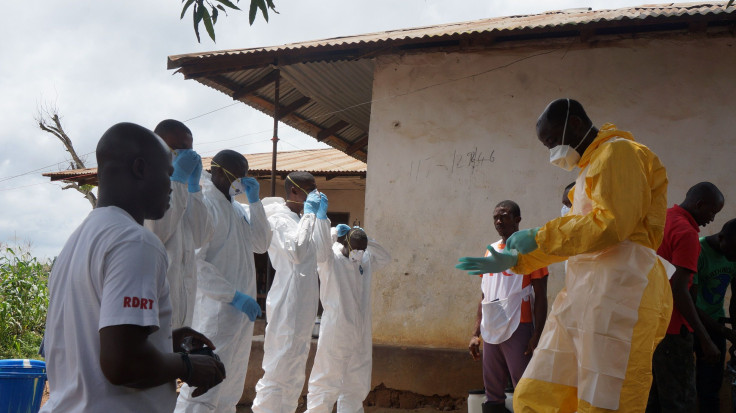Only Two-Thirds Of Ebola Donations Reached Affected Countries: Crisis Funding Is Too Slow, Says Study

The Ebola outbreak was one of the most urgent humanitarian crises this past year — and many people all over the world donated to the cause. By the end of December 2014, funds to the Ebola crisis reached up to $2.89 billion. But a new study has found that only about two-thirds of that (equal to about $1.9 billion) actually reached the West African countries affected by the epidemic.
The study, published in the journal BMJ, argues that inaccurate estimates and slow distribution of funds could have impaired the aid effort. “These delays in disbursements of funding may have contributed to spread of the virus and could have increased the financial needs,” Karen Grépin, assistant professor of global health policy at New York University and the author of the study, said in the press release.
Grépin wanted to examine “the level and speed of the international donations to tackle the Ebola epidemic and how they aligned with evolving estimates of funds required to bring the epidemic under control,” she writes. In other words, she wondered if the WHO’s estimates for funds, as well as its call to the international community, matched the actual need; she hypothesized that the gathered funds were often too little, too late. To complete the study, she analyzed international donations that were tracked by the UN Office for the Coordination of Humanitarian Affairs (OCHA) financial tracking system.
She found that initially, contributions to the outbreak were “slow to take off,” then continued to lag behind as the epidemic grew worse well into the fall of 2014. She writes that it probably took until mid-October before the infected countries received at least $500 million, and until December before they received $1 billion.
The WHO had been aware of a “rapidly evolving outbreak” of Ebola since March 23, 2014 — but did not make a major appeal to the international community until August, asking for $71 million. One month later, the UN estimated that around $1 billion would be needed: far more than originally imagined. By November, that estimate was at $1.5 billion.
“Clearly, international leaders have found it challenging to estimate the financial requirements to tackle this rapidly spreading outbreak,” Grépin said in the press release. “The problem has not been the generosity of donors but that the resources have not been deployed rapidly enough.” The results, she argues, suggests that “we need a mechanism to enable more rapid disbursement of funds to fight public health threats such as Ebola.”
Source: Grépin K. "International donations to the Ebola virus outbreak: too little, too late?" The BMJ. 2015.



























